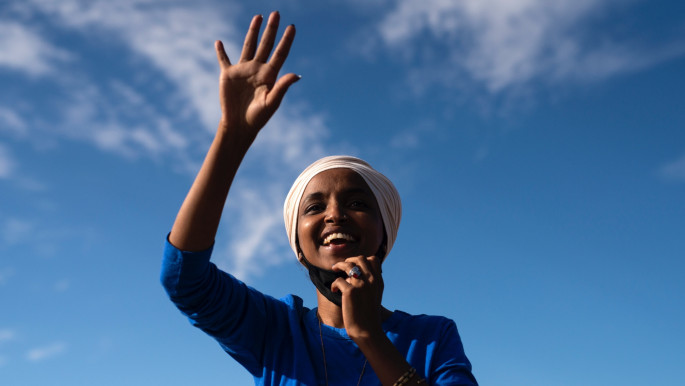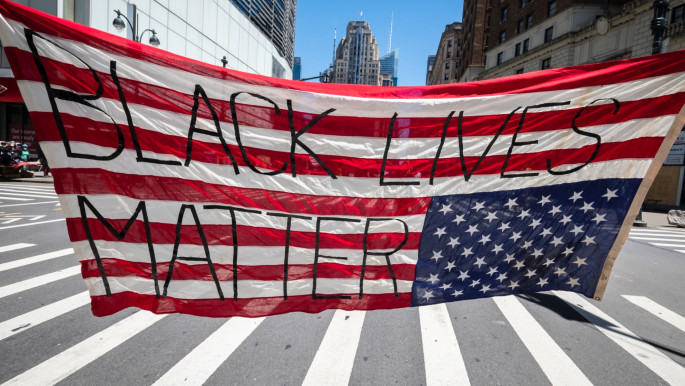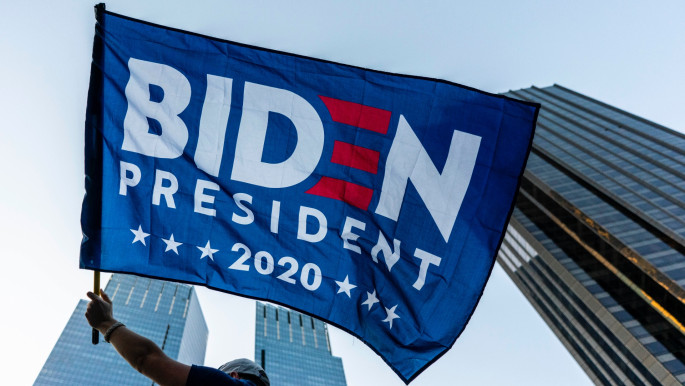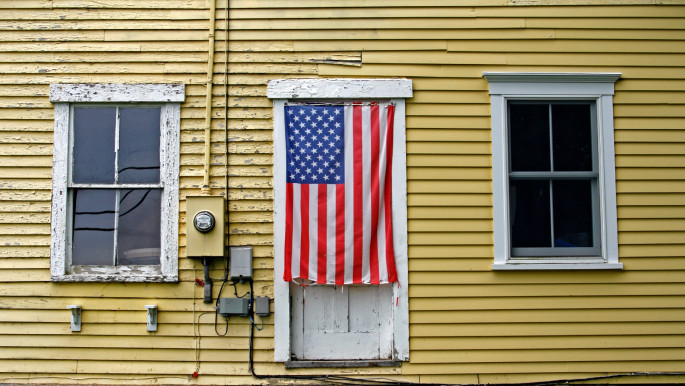Battle for the Senate: How Georgia's Muslim community is mobilising the vote
"The intensity is mirroring the presidential election. Not only would they represent Georgia, but they would also determine control of the senate," says Abdullah Jaber, executive director of the Council on American-Islamic Relations (CAIR) Georgia.
"We're seeing a lot of movement. There are more than 100,000 Muslims in Georgia, 70 percent of whom [that are eligible] are registered voters. It's a modest size compared with other states. But the sheer number means it makes a difference," he says.
While Georgia's Muslim community, which tends to vote Democrat at a rate of around 70 percent, is relatively small compared with other states, due to its often-narrow election margins it has the potential to make a difference. Joe Biden won the state by a margin of just 0.5 percent (around 12,500 votes).
Moreover, the reason for the two runoffs is because none of the candidates reached 50 percent. Republican David Perdue came the closest with 49.8 percent of the vote against his Democratic opponent Jon Ossoff, who came in at 47.9 percent (with the remainder of the votes going to third-party candidates). This makes voting blocs of any size impactful.
 |
Muslims in Georgia could make a big difference in the outcome of the two runoff races, which will determine the majority of the US senate |  |
A diverse community
Georgian Muslims, a small but diverse constituency – including African Americans (the biggest proportion), immigrants and converts of all backgrounds – is working to get out the vote through various civil rights, ethnic and religious organisations.
"Muslims are one of the most diverse communities. As the US becomes more diverse, so does the Muslim community. To organise ourselves, we have to build coalitions with different communities," says Umar Rupani, outgoing executive director of the Georgia Muslim Voter Project.
 |
|
| Read more: Trump campaigned on hate in Minnesota. Somalis helped vote him out |
"If you couple that with the poll we did in the run-up to the general election, what's motivating Georgian Muslims to go to the polls is social justice, especially when connected with police brutality and the Black Lives Matter movement. We see a sense of solidarity coming through. We're a faith that believes in helping our neighbours, even if they're not in our community," he says.
One notable example, that captured public attention at the time, was when Samad Hakani, a high school student in Gwinnett County, spoke up for a teacher who was reprimanded for having a Black Lives Matter poster in the background during a Zoom teaching session.
He organised students to support the teacher at a school board meeting. This was part of a larger movement to address racial inequity in the school district. Before that, he spoke out about a board member who had made comments against diversity and against Islam.
"I'd gone to school board meetings. It's definitely nerve-wracking the first few times. It's hard to muster the courage to take a stand. It hit home with the Islamophobic comment. He said Islam hasn't contributed anything in the past 1400 years," recalls Hakani, who is now an intern for one of the board members, working on education equity.
For him, taking a stand on Black Lives Matter is just as important as when he does so for his own community. "I know my friends would rush to defend me. It's basic human empathy. If you don't stand up for others now, it will get worse and worse," he says.
 |
We need to turn into an education machine, so people know how to use their vote intelligently and know how to vote for their values |  |
Staying engaged beyond the ballot box
Even though Hakani is not yet old enough to vote, he is doing what he can to be a part of the democratic process.
"Even if you can't vote, you can still have a large impact. You're getting an opportunity to help the country with the election process. It gives you a behind-the-scenes look at how voting works," says Hakani, who has noticed that white collar voters can more easily take time out of their schedule to vote.
"People are recognising the importance of younger voters, especially young people of colour. There are 23,000 new voters [who will have turned 18] for the runoff. Generation Z is much more politically active than before," he says. Indeed, an important part of mobilisation, say organisers, is to keep people civically engaged beyond the ballot box.
"As we see more and more people registered to vote, we understand there's a greater need than just getting people registered," says Rupani.
 |
|
| Read more: The role of Black Muslims in America's fight for racial justice |
"We need to turn into an education machine, so people know how to use their vote intelligently and know how to vote for their values. We're letting them make decisions themselves and giving them tools to make better decisions. We're using a holistic approach to civic engagement. Voting is just one way to be civically engaged," he says.
For Shafekah Hashash, a Georgia voter and an active member of the Democratic Socialists of America (DSA), being engaged at all levels is important. As for mobilising voters in a swing state like Georgia, she believes what's most effective is focusing on issues.
"One of the biggest things is focusing on specific issues, like climate change," she says. "As a Muslim and a Palestinian, I believe that advancing leftist issues will advance Muslims the most."
Jaber adds, "We just want people to practice the most impactful right they have. Whoever's working in this space, we want to amplify their work and keep momentum going."
 |
This is our home and our communities. We were with them before people cared about Georgia, and we'll be here after |  |
Overcoming Georgia's troubled legacy
As civil rights groups are encouraged by this momentum of enthusiasm in Georgia, a hard reality is never far from their minds. Elections are not always peaceful, particularly for minorities.
"Generally, going into the election cycle, things are very intense, especially for the Muslim community," says Jaber. "There's a strong correlation between election cycles and a rise in hate crime. Every election cycle for us has been a concern. In and around election day, Georgia is a high-risk state."
According to a study released last year by Safehome.org, a home and personal safety research and security company, hate crime is rising in Georgia at a higher rate than all US states but one (Wyoming). The study found that hate crimes rose by 219 percent between 2013 and 2017, with race/ethnicity, religion and sexual orientation as the top three motivators for perpetrators.
In addition, until last year, Georgia was among just four states with no hate crime laws at all (the others being Indiana, Utah and Wyoming). This changed with new legislation in June 2020 after the unprovoked murder of African American jogger Ahmaud Arbery in February, following nationwide protests.
 |
|
| Read more: How Arabs and Muslims helped flip Michigan blue for Biden |
Signs of discrimination have come up in the runoff campaigns. One of Kelly Loeffler's TV ads shows her opponent Raphael Warnock, who is Black, with his image darkened, placed in front of a scene of buildings burning from riots.
At a recent campaign rally, Perdue repeatedly mispronounced the first name of Senator and Vice President-elect Kamala Harris, despite having worked with her in the senate for the past four years. Back in July, Perdue's campaign released a Facebook ad of his opponent Jon Ossoff, who is Jewish, with an enlarged nose, denounced by critics as anti-Semitic.
With these tensions in mind, Jaber says they are implementing safety measures for their community.
"We've worked with mosques and across religious lines to make sure congregations have safety protocols in place. We're in contact with first responders, and we're helping communities stay alert without panicking. With the grace of God, things are working out better than we were anticipating. But there's still tension," he says.
 |
We just want people to practice the most impactful right they have. Whoever's working in this space, we want to amplify their work and keep momentum going |  |
Hope for the future
Despite the tension and a traditionally low turnout in runoff races, voters are still turning out in force.
"What's amazing is people are still turning out. In down ballot races we always see lower turnout. With Thanksgiving and the winter break, we really want to keep the momentum going," says Jaber.
With the recent presidential election having already mobilised voters, organisers say the majority of eligible voters have registered. The focus now is on voters who will be 18 by 5 January, as well as reminding those who are registered to vote in the runoffs.
 |
|
| Read more: Navigating Arab identity in America's racial landscape |
For now, with the clock ticking down to the January runoffs, organisers are energised by seeing their state in the spotlight, while also looking ahead to what it means for their own local politics.
"This is our home and our communities. We were with them before people cared about Georgia, and we'll be here after," says Rupani.
"We know this level of attention isn't going to stay, but we hope the attention continues to drive resources to local organisations, instead of national organisations and then leaving."
He adds, "For us, it's about staying on message. When people talk about the senate seats, what does this mean for your healthcare, your small business, and the safety your family feels on a day-to-day basis? We always want to connect it back to how it impacts the community on a day-to-day basis."
Brooke Anderson is a freelance journalist covering international politics, business and culture
Follow her on Twitter: @Brookethenews





 Follow the Middle East's top stories in English at The New Arab on Google News
Follow the Middle East's top stories in English at The New Arab on Google News


